
Filter News
Area of Research
News Type
News Topics
- (-) Advanced Reactors (4)
- (-) Biomedical (10)
- (-) Clean Water (4)
- (-) Frontier (10)
- (-) Grid (9)
- (-) Isotopes (11)
- (-) Partnerships (14)
- (-) Quantum Computing (10)
- 3-D Printing/Advanced Manufacturing (22)
- Artificial Intelligence (30)
- Big Data (10)
- Bioenergy (17)
- Biology (11)
- Biotechnology (5)
- Buildings (8)
- Chemical Sciences (11)
- Climate Change (11)
- Composites (6)
- Computer Science (39)
- Critical Materials (5)
- Cybersecurity (4)
- Decarbonization (15)
- Education (1)
- Emergency (1)
- Energy Storage (9)
- Environment (26)
- Exascale Computing (9)
- Fossil Energy (2)
- Fusion (8)
- High-Performance Computing (15)
- Machine Learning (8)
- Materials (11)
- Materials Science (20)
- Mathematics (3)
- Mercury (1)
- Microelectronics (1)
- Microscopy (3)
- Nanotechnology (4)
- National Security (15)
- Net Zero (4)
- Neutron Science (17)
- Nuclear Energy (14)
- Physics (8)
- Polymers (2)
- Quantum Science (19)
- Security (4)
- Simulation (11)
- Space Exploration (4)
- Statistics (2)
- Summit (13)
- Sustainable Energy (20)
- Transportation (11)
Media Contacts

ORNL researchers are working to make EV charging more resilient by developing algorithms to deal with both internal and external triggers of charger failure. This will help charging stations remain available to traveling EV drivers, reducing range anxiety.
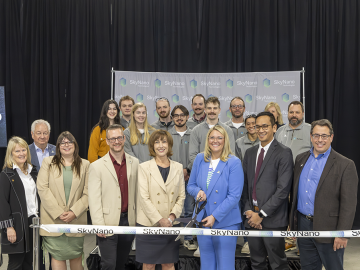
SkyNano, an Innovation Crossroads alumnus, held a ribbon-cutting for their new facility. SkyNano exemplifies using DOE resources to build a successful clean energy company, making valuable carbon nanotubes from waste CO2.
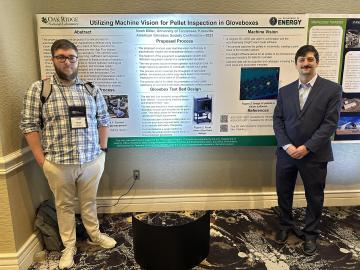
College intern Noah Miller is on his 3rd consecutive internship at ORNL, currently working on developing an automated pellet inspection system for Oak Ridge National Laboratory’s Plutonium-238 Supply Program. Along with his success at ORNL, Miller is also focusing on becoming a mentor for kids, giving back to the place where he discovered his passion and developed his skills.
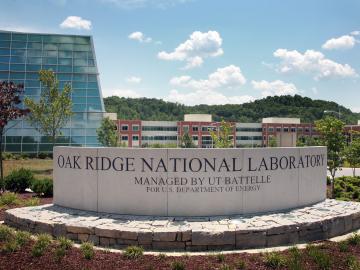
Two different teams that included Oak Ridge National Laboratory employees were honored Feb. 20 with Secretary’s Honor Achievement Awards from the Department of Energy. This is DOE's highest form of employee recognition.

A key industrial isotope, iridium-192, has not been produced in the U.S. in almost 20 years. DOE's Isotope Program and QSA Global Inc. announced a joint product development agreement to initiate U.S. production of iridium-192.
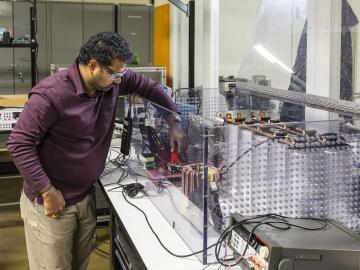
Scientists at ORNL are looking for a happy medium to enable the grid of the future, filling a gap between high and low voltages for power electronics technology that underpins the modern U.S. electric grid.
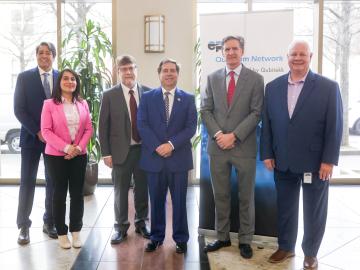
EPB, ORNL announce plans for research collaborative focused on energy resilience, quantum technology
EPB and ORNL marked 10 years of collaboration with the announcement of the new Collaborative for Energy Resilience and Quantum Science. The new joint research effort will focus on utilizing Chattanooga’s highly advanced and integrated energy and communications infrastructure to develop technologies and best practices for enhancing the resilience and security of the national power grid while accelerating the commercialization of quantum technologies.
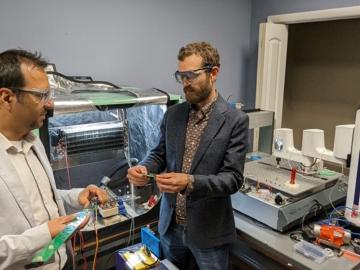
Four ORNL teams and one researcher were recognized for excellence in technology transfer and technology transfer innovation.

From July 15 to 26, 2024, the Department of Energy’s Oak Ridge National Laboratory will host the second U.S. Quantum Information Science, or QIS, Summer School.
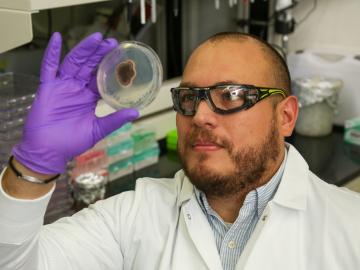
New computational framework speeds discovery of fungal metabolites, key to plant health and used in drug therapies and for other uses.


